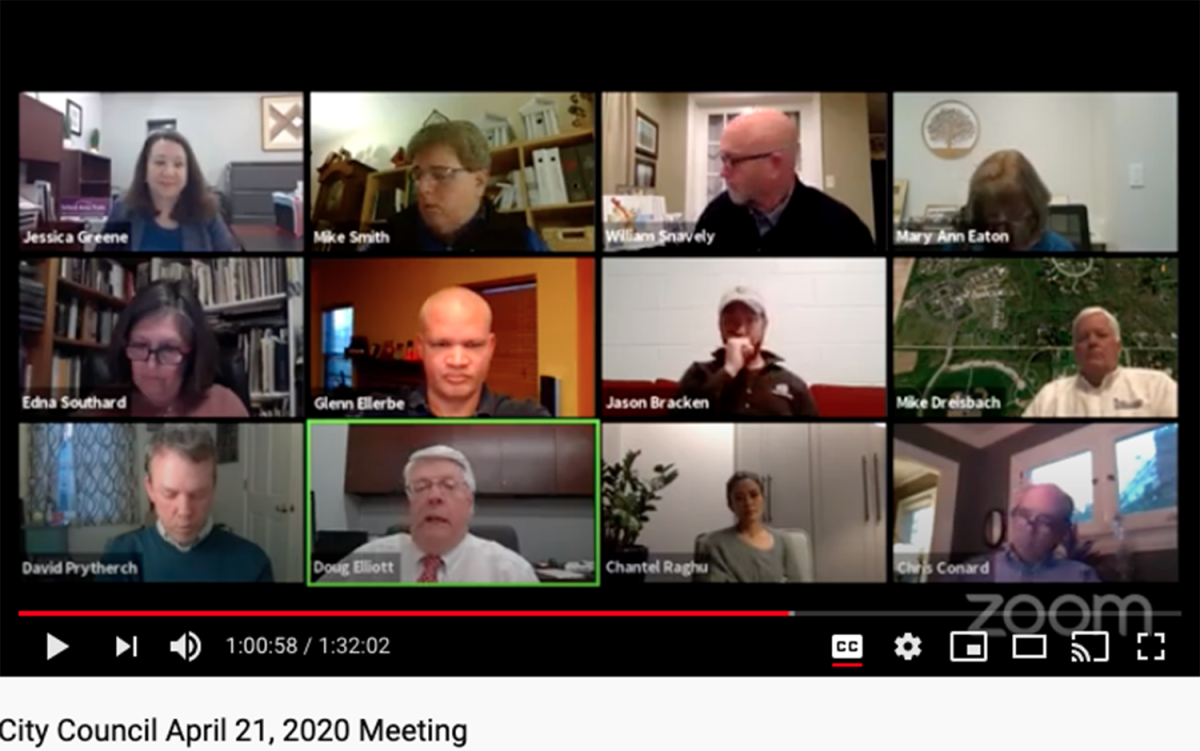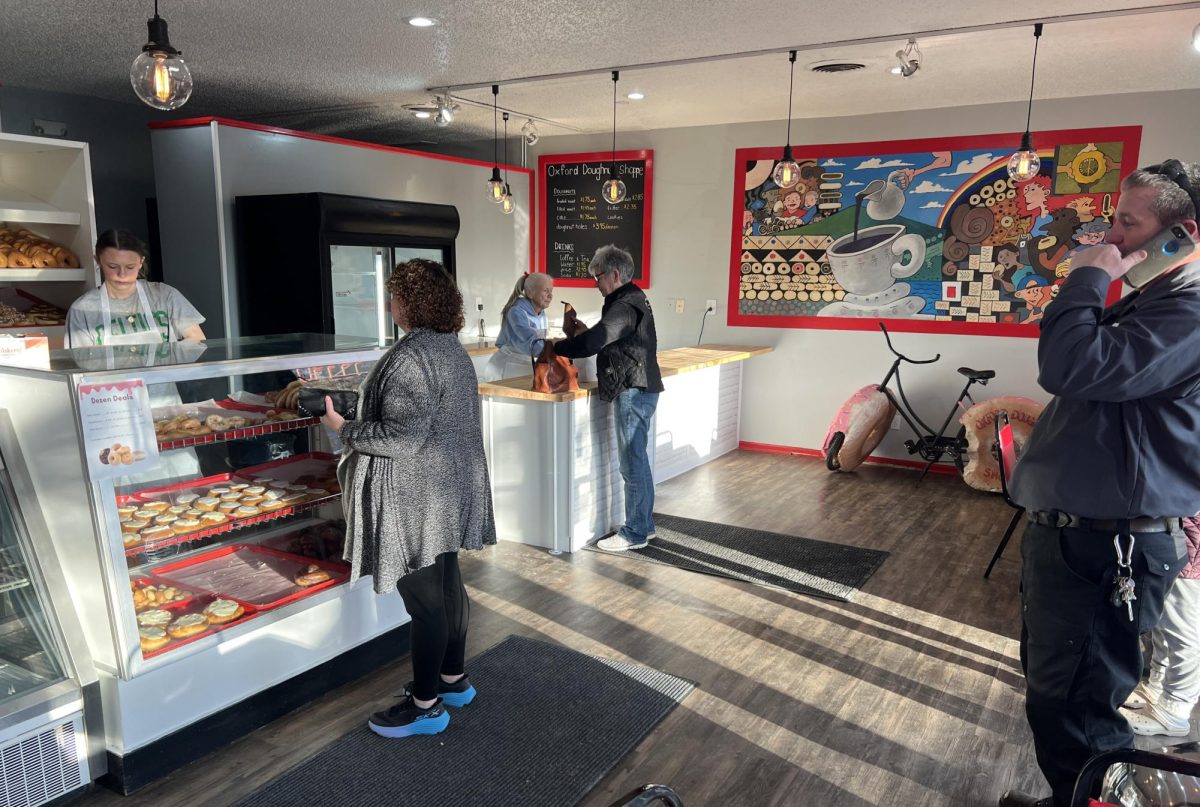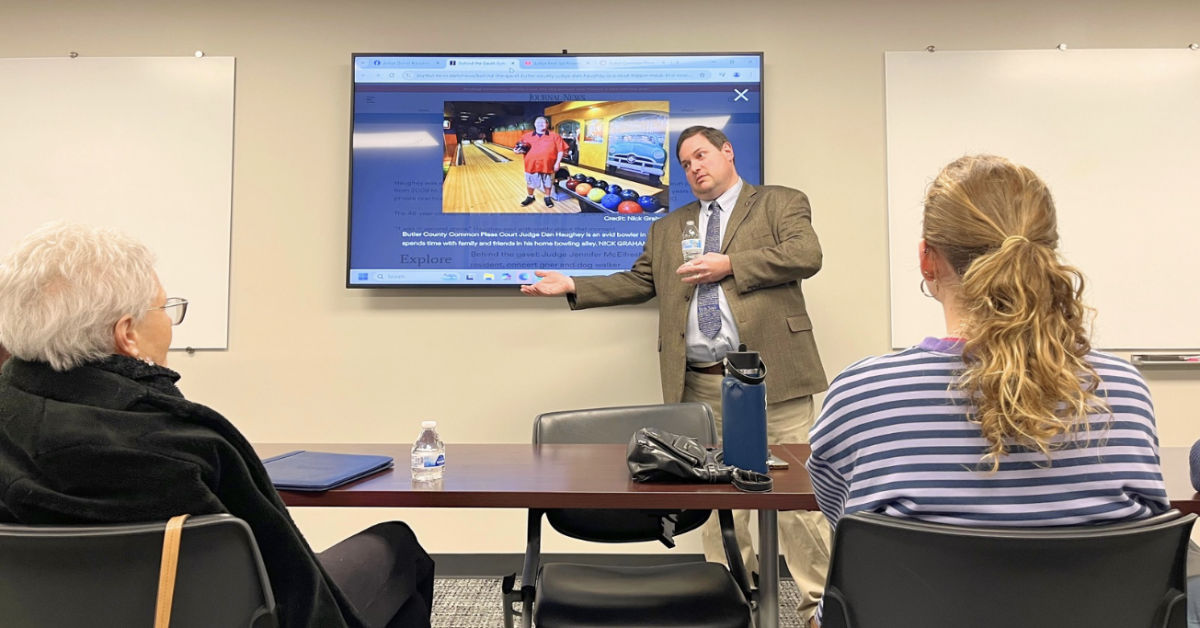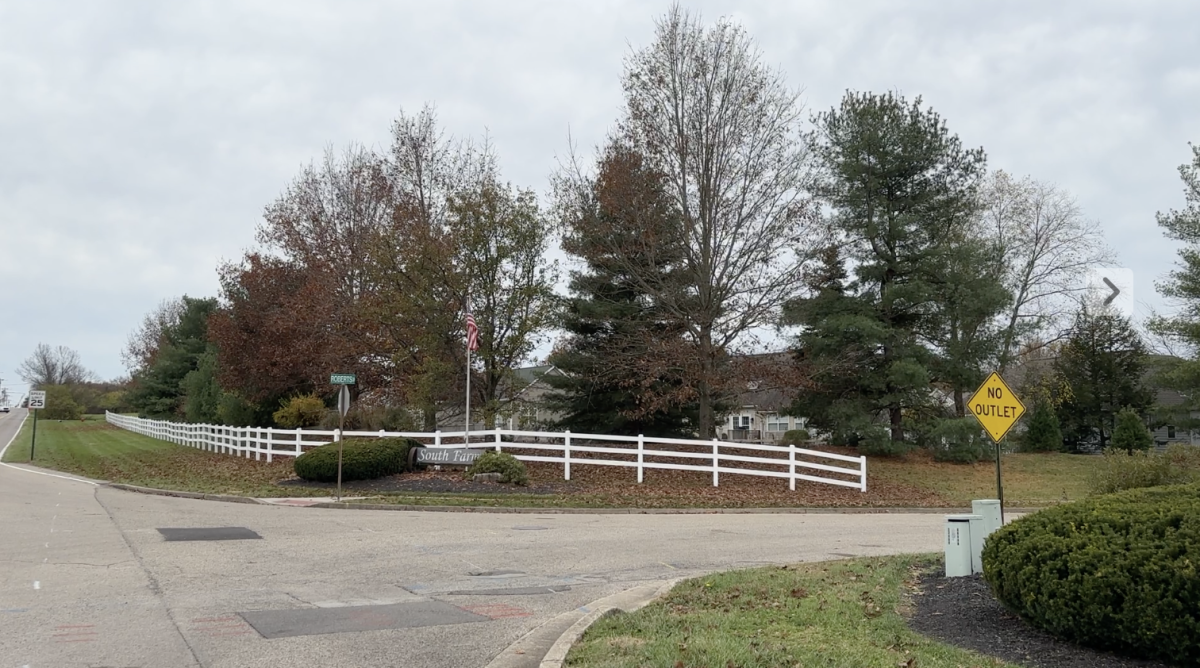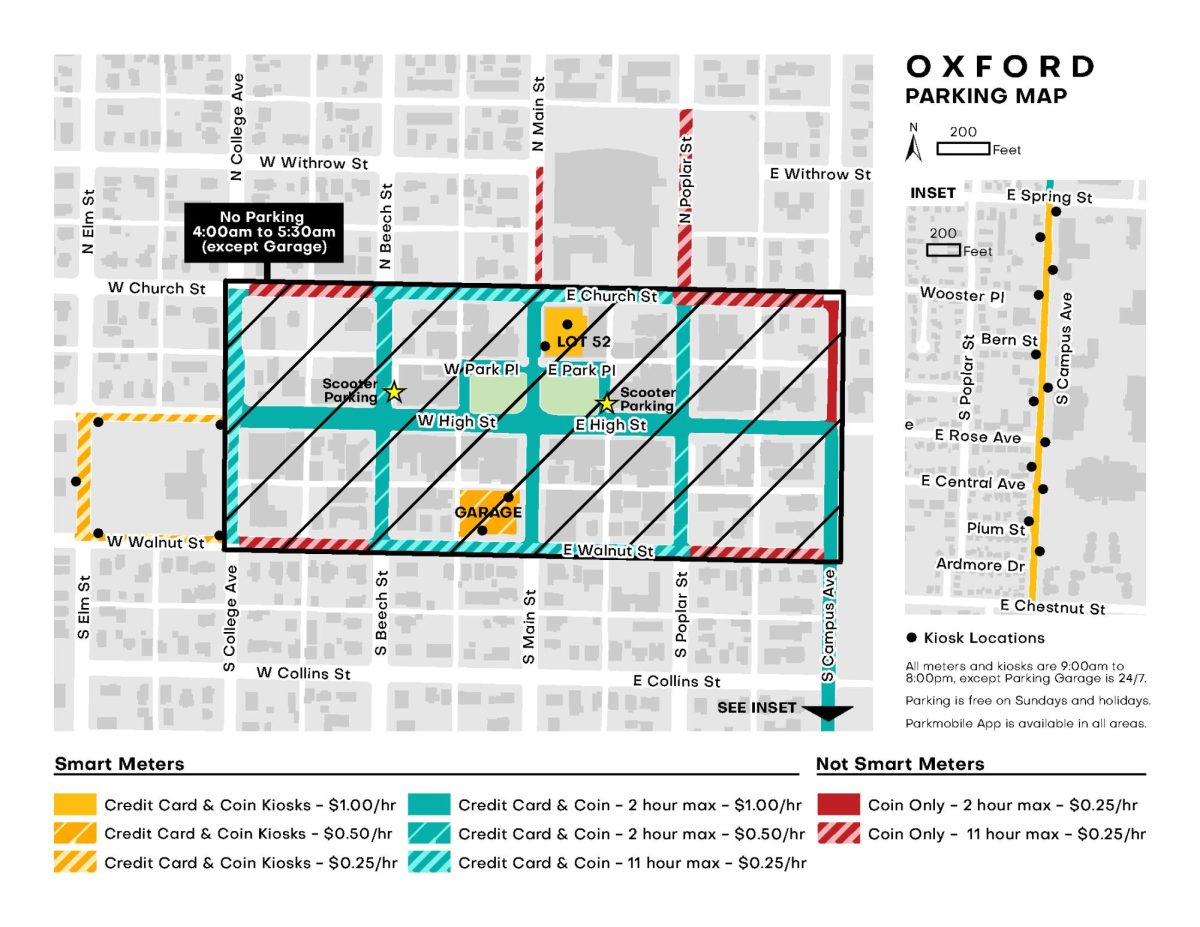Another week of social distancing, another virtual city council meeting.
The Oxford City Council met on Zoom this Tuesday for its regularly scheduled meeting and spent most of the meeting talking about trees.
The session began with a proclamation recognizing “Arbor Day,” on April 24. Arbor Day is the celebration of trees, according to the mayor’s proclamation. On the first Arbor Day, in 1872, more than a million trees were planted in Nebraska, according to the proclamation.
Trees are valued for their shade, protection against wind and water erosion and for all of the various wood products they provide. The city of Oxford has approximately 3,430 trees along its streets, parks and other public places, according to the proclamation. All that growth makes Oxford a recognized “Tree City,” according to the National Arbor Day Foundation.
The proclamation was well-timed, as the first readings of amendments to the city ordinances regarding trees were discussed at the meeting. The ordinances have been in the works for several years, according to Sam Perry, Oxford’s community development director.
“We are tree city, this is Arbor Day coming up, and I couldn’t imagine a more perfect time,” Councilor Edna Southard said.
The Oxford Environmental Commission has been working for about three years to protect trees and vegetated areas within the city. According to the report submitted with the proposed ordinances, concerns for protecting the trees in Oxford came to light when the Heritage Vineyard subdivision began development and trees were cut down. A first reading of zoning amendments was presented to council in March of 2019, however there were objections to how rigid the language of the text was. The environmental commission and community development department worked to fix that.
The goal of these eight ordinances would be to incorporate more requirements for preserving and planting trees for new developments, or any major changes to existing developments, according to the report.
“There’s a lot of technical stuff here, but I would like to share with my colleagues that this is a really good set of ordinances,” Vice Mayor Bill Snavely said in the meeting.
City councilor, David Prytherch, said the measures encourage sustainability while balancing the encouragement of housing developments for the city, which are two of the city council’s strategic goals for the year. Prytherch said before these ordinances were proposed, developments could come in without any evaluation of what they were doing to the natural lands of the area.
“You could have a mature woodland, and our code had zero protection for that and that just didn’t reflect our values and our comprehensive plan,” Prytherch said. Residents can view the full report on the proposed ordinances on the meeting’s agenda.
Along with these ordinances, city manager, Doug Elliott, provided the city council with a COVID-19 update from Michael Everett, president of McCullough-Hyde Memorial Hospital, from their weekly meetings.
According to the information Elliott read to council, the hospital has performed 162 COVID-19 tests since March 12. 121 of those tests were negative; 31 were positive. Ten of the tests were pending at the time of the report. There has been one death. This information could change, as the COVID-19 situation is always evolving.
Elliott said that while these numbers are significant, McCullough-Hyde serves more than just the city of Oxford and the cases referred to in the report come from a wider region than just the city. According to the Butler County Health Department, the 45056 zip code (includes the city of Oxford, Oxford township, parts of Reilly and Milford townships), had 13 confirmed COVID-19 cases as of April 23.
Elliott said the hospital is still prepared and has the resources to care for the community.
“This situation is evolving,” Elliott said. “Our behavior will control our fate until there is a vaccine developed for us.”
The virtual council meetings are scheduled to continue as long as the state’s directives against large public gatherings remain in place.


